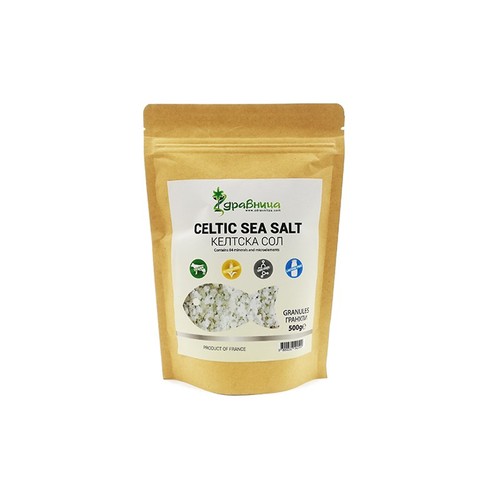Copyright © 2012 - 2021 NaturalniProdukti.com
- Superfoods
- Supplements
- Butter/Oil
- Drinks
- Food
- Grains and Legumes
- Bean
- Lentils
- Rice
- Quinoa
- Buckwheat
- Wheat, spelt, spelled
- Millet, amaranth, rye, chickpeas, bulgur, soybeans
- Seeds, nuts, dried fruit
- Refreshments
- Pasta
- Noodles
- Macaroni
- Cous cous
- Spaghetti, Linguini
- Fusilli, farfalle
- Penne
- Tagliatelle, Pappardelle
- Lasagna, Cannelloni, Gnocchi
- Flour
- Starch
- Soda, yeast, starters
- Salt
- Himalayan salt
- Sea salt
- French Celtic salt
- Potassium vital salt
- Sugar
- White sugar
- Brown sugar
- Coconut sugar
- Sweeteners
- Syrup
- Maple syrup
- Syrup of Elderberry
- Agave syrup
- Cosmetics
- Cosmetics for face
- Face cream
- Anti-acne cosmetic
- Serums and oils for face
- Masks and bran Face
- Cleansing cosmetics for face
- Floral waters
- Cosmetics for eyes
- Cosmetics for lips
- Body cosmetics
- Body lotion
- Body oils
- Forming creams
- Massage oils
- Pregnant and lactating
- For man
- Cosmetics for babies and children
- Deodorants
- Hair cosmetics
- Shampoos
- Conditioners
- Hair masks
- Oils, serums and lotions for hair
- Sets Hair
- Others
- Preparations
- Home/
- Food/
- Salt/
- French Celtic salt/
- Celtic (gray) salt, granulated, dried, 500 g.
Celtic (gray) salt, granulated, dried, 500 g.
The Celtic salt contains 84 minerals and trace elements. This makes it very useful for people with heart problems and high blood pressure.
Granulated Celtic salt is extracted in the summer from the shores of Brittany (Northern France), under the influence of the ocean, sun and wind. Salt is collected manually by traditional methods.
Celtic (gray) salt is a natural product obtained without refining and using additives. In the late afternoon, under the influence of evaporation, using a wooden fixture, the salt crystals are pulled onto a clay platform, where they are left overnight to drain. This is where the natural gray color of Celtic salt comes from.
The Celtic salt contains 84 minerals and trace elements. This makes it very useful for people with heart problems and high blood pressure.
Useful properties of Celtic salt:
Celtic salt helps to improve digestion, makes the body more resistant to infection and is involved in maintaining the alkaline acid balance. The presence of magnesium helps your body's excess sodium to be expelled quickly.
Celtic salt reduces water retention, stimulates saliva production and helps drainage and removal of harmful substances.
According to some studies, it works immunostimulatory and gives extra energy to the body. The iodine contained in it protects you from the harmful effects of the environment, and natural antihistamine relieves allergies.
Contents:
Sea Celtic Pellet Salt - Dried.
Usage:
Granulated Celtic salt is used as a substitute for traditional salt in the preparation of all home-cooked meals - vegetables, meat, fish, pasta or barbecue. Due to the moisture content of the crystals, this salt is not suitable for use in a mill.For the human body, the benefits of salt are invaluable, and in its chronic deficiency, even death is possible. The fact is that the human body is 70% water, and sodium chloride (the chemical name of salt) maintains the water balance in the body.
Is salt that really that bad? Can our body exist without salt?
Myth №1 - It is a white poison
In fact, salt is the most precious gift of nature, which must be treated very carefully. It is no wonder that before her weight was valued in gold, because of her there were even "salt riots". In Bulgaria we have welcomed and continue to traditionally do it our dear guests with bread and salt, the best friend is the one with whom "we ate at least a kilogram of salt", and especially the important things for us we define as "salt of the earth" .
For the human body, the benefits of salt are invaluable, and in its chronic deficiency, even death is possible. The fact is that the human body is 70% water, and sodium chloride (the chemical name of salt) maintains the water balance in the body. Chloride is needed for the formation of hydrochloric acid, which is a major component of gastric juice, stimulates the nervous system and fat metabolism. Without sodium, which is part of the salt, it is not possible to carry oxygen in the blood and the transmission of nerve impulses and muscle movement. Therefore, Paul Bragg's claim that salt is a white poison and needs to be completely excluded from our menu is not true. However, excessive salt intake retains fluid in the body, which leads to an increase in blood pressure. This increases the load on the heart and blood vessels, the kidneys suffer, the metabolism is disturbed. So salting food is not only harmful but also dangerous. The daily salt intake should not exceed 10 grams.
Myth №2 - Salt-free diet
Nutritionists often prescribe a salt-free diet for obesity. Its duration should not exceed 15 days. As a rule, during this time you can lose up to 4 pounds. But this does not happen at the expense of fat breakdown, but as a result of dehydration. Along with water, vital minerals such as calcium, potassium and magnesium are washed away. In the absence of these substances, the electrolyte balance in the body is disturbed, rapid fatigue, loss of strength, dry skin and hair occur. Insufficient salt intake leads to dysfunction of the cardiovascular system, the appearance of osteoporosis, anorexia and depression. Therefore, you should not completely exclude salt from your diet, as it is important to regulate your water-salt metabolism.
Myth №3 - Salt deposition
Salts are a group of chemical compounds, not just sodium chloride, which we call salt. Calcium salts, phosphates, urea, salts of bile acid are generally deposited in the body. Ie table salt has nothing to do with it. The most important factor is the ratio of the amounts of salts consumed and excreted by the body. A healthy body absorbs only the amount of salt it needs, and the excess is discarded. If the metabolism is disturbed, salts begin to accumulate in the joints, kidneys, gallbladder. Ie when it comes to salt deposition, it is those that are contained in the tissues, not the table salt.
Myth №4 - Destroys teeth
In fact, if you chew rock salt, you can damage your tooth enamel. Therefore, it is better to use it in solution. Sea salt is much softer, there are even delicacies that can be chewed without any problems. There are also folk recipes for strengthening teeth and gums, as well as for treating mouth ulcers with salt. Strengthen your teeth with a gargle of warm water in which you have dissolved salt and soda. So the benefits of salt have been tested for many generations. The claim that salt destroys teeth is nothing more than a myth.
Myth №5 - Increases blood pressure
Excess salt affects the mechanism that regulates blood pressure and causes the development of atherosclerosis, especially of cerebral blood vessels. Salted foods significantly increase fluid intake, which affects the heart and blood vessels. In this way there is swelling of the limbs, bags appear under the eyes. Nutritionists advise patients with hypertension to reduce their daily dose of salt or use the dietary version of this product. Dietary salt contains much less sodium, so its use has a positive effect on health.
Varieties of the spice:
Salt-extra
This is the "most aggressive" form of salt, as it contains pure sodium chloride. All useful minerals are destroyed in the process of evaporation of water and purification with soda. The benefit of this type of salt in this case is minimal.
Iodized salt
It is very useful for people who live in environmentally unfavorable areas. It is not recommended to use such salt in case of increased activity of the thyroid gland.
Rock salt
It has a grayish color, it is a natural salt extracted from the mines.
Salt
This is bleached rock salt in the form of natural crystals.
Sea salt
One of the most useful types of salt, as it contains useful trace elements.
Black salt
A natural, raw product. It is rich in sulfur, iron, potassium and iodine. It improves digestion and acts as a mild laxative.
Dietary salt
This is a salt low in sodium. Contains potassium and magnesium, which are good for the heart and blood vessels. It is perfect for people with joint diseases.
Source: https://rodopi-info.com/polezna-li-e-solta/- Related products
- Similar products
- French sea salt, fine3.88 EUR
- French sea salt, coarse2.77 EUR
- Celtic (Gray) salt, fine, 500 g4.28 EUR
- French sea salt, fine2.33 EUR
- Comments
- September 24, 2023 3:38 PM
- Product comments
- Newsletter






